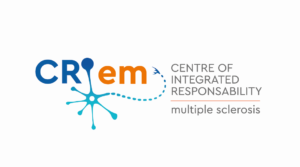Multiple Sclerosis Center Lisboa Portugal
Introduction:
In December 2022, our department focused on Multiple Sclerosis care, independent from the General
Neurology Department, was enabled through the creation of the Multiple Sclerosis Integrated Responsibility
Center (MS-IRC). The healthcare base model has made a transition from a traditional model where the patient
was followed by a specialized MS nurse and Neurologist team within a general Neurology Department with
occasional evaluation by other specialities in their respective departments, to a model focused on integrating
a large number of specialities combined in a unique space, dedicated to the MS care pathway, including social
worker, neuropsychologist, psychologist, nutritionist and pharmacologist.
Methods:
As a preliminary evaluation, we aim to evaluate if the achievement of MS quality standards were achieved in
our first year of activity, in newly diagnosed MS patients. The following standards were included, in
accordance with previous publication by J. Hobart, A Bowen et al:
– time to first neurologist appointment following referral: 4 weeks
– time to complete a lumbar puncture as part of the diagnostic workup of MS following the neurologist
evaluation: 2 months
– time to treatment discussion by MS team, following diagnosis: 4 weeks
– time to brain-health lifestyle discussion by the nurse team, following diagnosis: 3 months
– time to cognitive screening, following diagnosis: 6 months
– time to treatment initiation, following diagnosis: 2 months
– time to additional support to make lifestyle modifications, implemented by psychologist, nutritionist or social
worker, following diagnosis: 6 months
Results:
We evaluated about 1200 patients in 2023 in our centre, 69 were newly diagnosed with a MS spectrum
disorder.
Mean time to first neurologist appointment following referral was 18,68 days (N=69), mean time to complete
a lumbar puncture as part of the diagnostic workup of MS following the neurologist evaluation was 17.46
days, mean time to brain-health lifestyle discussion by the nurse team, following diagnosis was 9.4 days, mean
time to treatment discussion by MS team, following diagnosis was 36.41 days , mean time to cognitive
screening, following diagnosis was 87.28 days and mean time to treatment initiation, following diagnosis was
81.03 days.
Finally, mean time to social worker appointment was 36.57 days, mean time to nutritionist appointment was
75.50 day and the Mean time to psychologist appointment was 86.79 days.
Our core team’productivity increased to 0,69 pp and we observed that the team prioritized usage of
technological solutions to communicate with patients, to assess and provide a timely follow up.
During 2023, 82% of our appointments were done through telemedicine, with a positive impact on timely
interventions, reduction of patient transportation costs and increase of efficiency.
The first-year preliminary financial report demonstrates we increased our cost efficiency as our patient’s care
cost (medication excluded) decreased 7,0% when comparing with the year before. If we exclude the cost of
medication, our patient’s care cost improved from 1.984,30€ per patient in 2022 to 1.845,50€ in 2023.
However, as our treatment protocols are based in the prescription of high-efficiency medicines at an early
stage of the disease which ensures less disability progression in patients through the disease, our cost per
patient including medicine prescription has increased from 4.187,00€ per patient in 2023 to 5.062,00€ in
2023.
Conclusion:
In our first year of activity, we were able to achieve almost all the indicators considered standard for timely,
brain-health-focused MS care. However, there is still needed to improve time to treatment initiation, and to
monitor other indicators of MS pathway. Also, indicators such as patients reported outcomes and patients’
satisfaction measures and cost-effectiveness of treatments and interventions should be monitored in the
future and included in the value equation.

